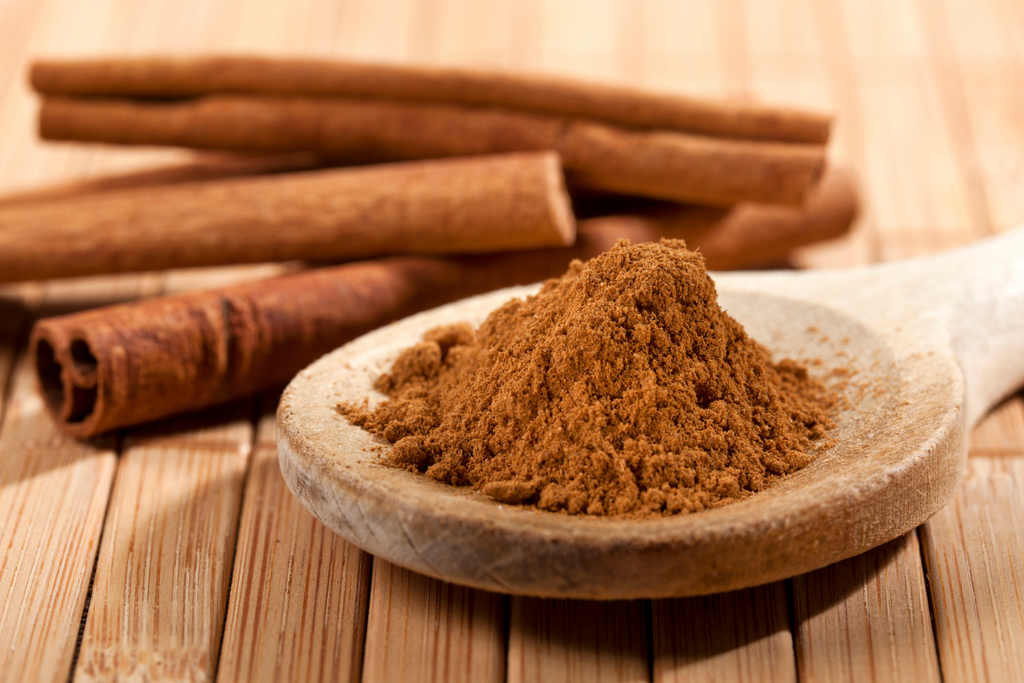Your Cart is Empty
Camu Camu: Superfood for Immunity & Skin Health
Camu camu (Myrciaria dubia) is a powerful superfood native to the Amazon rainforest. Th...
READ MORE
Cinnamon is one of the world's most cherished spices and is known for its characteristic warm, sweet, and aromatic flavor that makes it a favorite in the kitchen. This ancient spice has a fascinating history and a host of surprising health benefits, ranking it among the healthiest spices on earth.
Cinnamon is an aromatic spice obtained from the inner bark of trees from the Cinnamomum genus. This spice, used for both its flavor profile and medicinal properties, has a history dating back at least 4000 years, as early as Ancient Egypt.
In ancient times, cinnamon was so highly treasured that it was considered more precious than gold. It was a staple in traditional medicine and was also used as an embalming agent presumably due to its fragrance. Throughout the Middle Ages, it became a status symbol in Europe, and during the 15th century, the allure of cinnamon led explorers like Christopher Columbus and Vasco Da Gama to seek new routes to the source of the spice.
Fast forward to today, the allure of cinnamon remains steadfast. Beyond the delightful flavor it imparts to our culinary endeavors, it is highly revered for its powerful medicinal properties, earning it an esteemed place in the arsenal of many healers.
The virtues of cinnamon extend far beyond its pleasing scent and delicious flavor. This spice is packed with an array of essential nutrients, antioxidants, and has numerous health benefits.
Cinnamon is rich in calcium, fiber, iron, and manganese, and also contains vitamin K as well as antioxidants. It's these potent antioxidants, such as polyphenols, phenolic acid, and flavonoids, that make cinnamon a heavyweight in the health and wellness world. These compounds have strong anti-inflammatory effects and help fight off oxidative damage caused by free radicals, slowing down aging and warding off chronic diseases.
The health benefits of cinnamon also extend to improved metabolic health, inflammation reduction, and even potential protective effects against cancer.
Cinnamon is hailed for its potential role in managing and preventing diabetes. It has been found to lower fasting blood sugars by 10-29% in diabetic patients, according to numerous studies. This powerful spice can also improve insulin sensitivity, as it helps insulin do its job and thereby reduces blood sugar levels. For those already dealing with diabetes or those seeking to prevent it, incorporating cinnamon into your diet could be an effective strategy.
Inflammation in the body can contribute to the development of various chronic diseases, such as heart disease and cancer. The high level of antioxidants present in cinnamon imparts it with potent anti-inflammatory properties. These help the body fight infections and repair tissue damage while also helping to prevent chronic inflammation.
Cinnamon has been linked to reduced risk of heart disease, the world's most common cause of premature death. The spice has been shown to reduce levels of total cholesterol, LDL cholesterol, and triglycerides, while HDL cholesterol (the "good" cholesterol) remains stable. Further, cinnamon can reduce blood pressure and, in the case of patients with type 2 diabetes, a daily intake of cinnamon lowered both LDL and triglycerides levels while increasing HDL.
The antioxidants in cinnamon could help protect neurons and improve motor function, potentially slowing the progression of neurodegenerative diseases like Alzheimer's and Parkinson's. These neuroprotective effects of cinnamon could be due to two compounds, cinnamaldehyde and epicatechin, which are believed to be instrumental in fighting these disorders.
Cinnamon's antioxidant and anti-inflammatory properties could potentially protect against certain cancers. While research is still ongoing, some studies suggest that the cinnamaldehyde in cinnamon could inhibit the growth of cancer cells and induce apoptosis (cell death), thereby providing some level of protection against the dreaded disease.
Cinnamon may also play a role in weight management. The spice's impact on blood glucose levels helps control appetite and prevent overeating. This, along with cinnamon's role in speeding up metabolism, can assist in weight loss and management.
Cinnamaldehyde, one of the main active components of cinnamon, has been found to fight various kinds of infection. Cinnamon oil has shown promise in treating respiratory tract infections caused by fungi and can inhibit the growth of certain bacteria, including Listeria and Salmonella.
Cinnamon's antimicrobial and antibiotic effects can benefit your gut health by clearing unwanted bacteria from your digestive system. Its high fiber content also aids in improving overall digestion and reducing symptoms of discomfort like bloating and nausea.
Cinnamon, the spice that once dominated the trade routes of the world, continues to be a popular choice for enhancing flavor profiles in cooking. However, beyond its culinary uses, it brings a wealth of health benefits, from anti-inflammatory and antimicrobial properties to the potential management of blood sugar levels and weight. Whether added to your favorite dish or taken as a supplement, including cinnamon in your diet could contribute positively to your health journey.
Click here to try Nutrigazm before it’s gone!

Camu camu (Myrciaria dubia) is a powerful superfood native to the Amazon rainforest. Th...
READ MORE
Blueberries are more than just a delicious superfood. Packed with essential nutrients, ...
READ MORE
Strawberries are more than a sweet snack—they’re a low-sugar, antioxidant-packed superf...
READ MORE